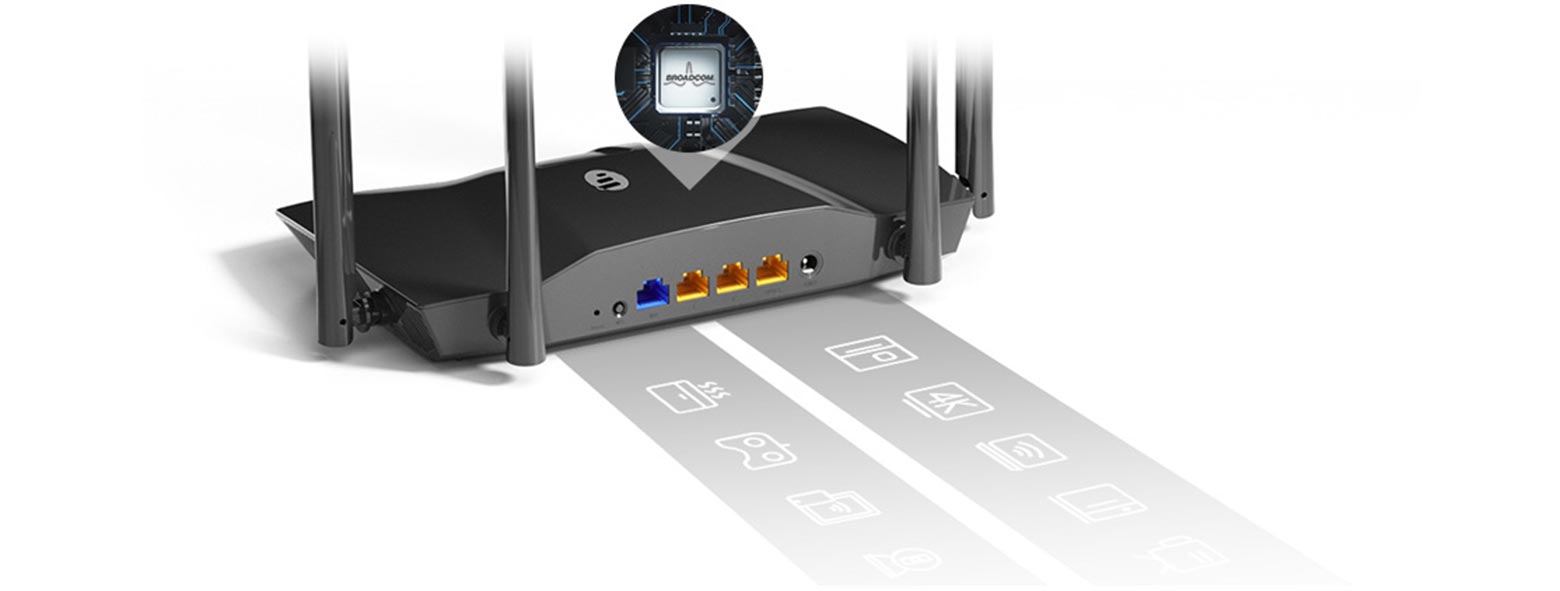How Does a Router Work?
The router, at least the common home network device that is usually called a router, is the piece of network hardware that allows communication between your local home network—like your personal computers and other connected devices—and the internet. This article fully explains routers in terms of their functions and types, why you need a router, how to differentiate between routers and modems, and how routers can work for your business.
What Does a Router Do?
A router for wireless wifi establishes connections between computers and other devices to provide internet access. They function as intelligent dispatchers, determining the most efficient path for data transmission. Routers serve as the gateway for your business, connecting it to the global network, safeguarding information against security risks, and even prioritizing certain computers over others.
Why Do You Need a Router?
A router for wireless wifi facilitates the connection of numerous devices to the internet while also establishing connectivity between the devices themselves. Additionally, routers enable the creation of local networks, which prove beneficial for file sharing between devices or facilitating collaborative software tool usage among employees. Without routers, the proper routing of your business's data would be compromised. For instance, when attempting to print a document, a router becomes essential in directing that document specifically to a printer rather than mistakenly sending it to another computer or scanner.
What Sets Modems Apart from Routers?
A modem establishes the connection between your business and the internet through your internet service provider (ISP). On the contrary, a router connects multiple devices within a network, which includes modems. By having a router, data can be efficiently transmitted between modems and other devices, enabling seamless data transfer across different locations.
What Are the Different Types of Routers?
-
Wired routers: Wired routers typically establish a direct connection to modems or wide-area networks (WANs) using network cables. These routers typically feature a port that enables communication with the internet by connecting to modems.
-
Wireless routers: Wireless routers can establish connections with devices that are compatible with the same wireless standards. These routers can wirelessly receive and transmit information to and from the internet.
How Do Routers Work?
Routers serve as the link between modems (such as fiber, cable, or DSL modems) and other devices, enabling communication between these devices and the Internet. Most routers, including wireless routers, are equipped with multiple network ports to facilitate simultaneous internet connections for numerous devices. Typically, a router establishes a physical connection to the modem using a network cable, utilizing the internet or WAN port and then establishes another physical connection to wired network devices through network cables and their network interface cards.

Routers for wireless wifi can connect wirelessly to devices that support the same wireless standards, while wired routers with multiple connections also function as network switches, enabling devices to communicate with one another. For instance, computers connected to a router can be configured to share files and printers among themselves. Routers can be likened to small computers, featuring a CPU and memory to handle incoming and outgoing data. They can be loaded with different software, similar to an operating system on a computer, such as DD-WRT. Operating at the Network layer (layer 3) of the OSI model, a router utilizes routing tables to comprehend the origin and destination of incoming traffic, determining where it should be directed.
How Can Routers Benefit Your Business?
-
Enhancing Application Sharing
Router for wireless wifi plays a crucial role in providing employees with access to business applications, leading to increased productivity, particularly for remote or off-site workers. Routers also enable the utilization of specialized services like VoIP, video conferencing, and Wi-Fi networks.
-
Accelerating Information Access
By implementing routers, your business can improve responsiveness to customer inquiries and facilitate easier access to customer information. These advantages are particularly valuable in an era where customers expect quick responses and personalized service. By establishing a fast and reliable small business network with routers, employees can promptly and intelligently address customer needs.
-
Reducing Operational Expenses
Routers can positively impact your business's financial performance. Sharing equipment such as printers and servers, as well as services like internet access, can result in cost savings for your small business. Additionally, a robust network built with routers can scale and adapt to your business's growth, eliminating the need for frequent network rebuilds and device replacements.
-
Enhancing Security
WiFi routers contribute to safeguarding valuable business data by offering built-in firewalls or web filtering capabilities that analyze incoming data and block potential threats.
-
Enabling Secure Remote Connections
Routers facilitate secure remote access for mobile workers who need to communicate with colleagues or utilize business applications. This functionality is particularly relevant for businesses with virtual teams and home-based telecommuters who require seamless sharing of critical business information at any time of the day or night.
You might be interested in
Email Address

-
PoE vs PoE+ vs PoE++ Switch: How to Choose?
Mar 16, 2023














